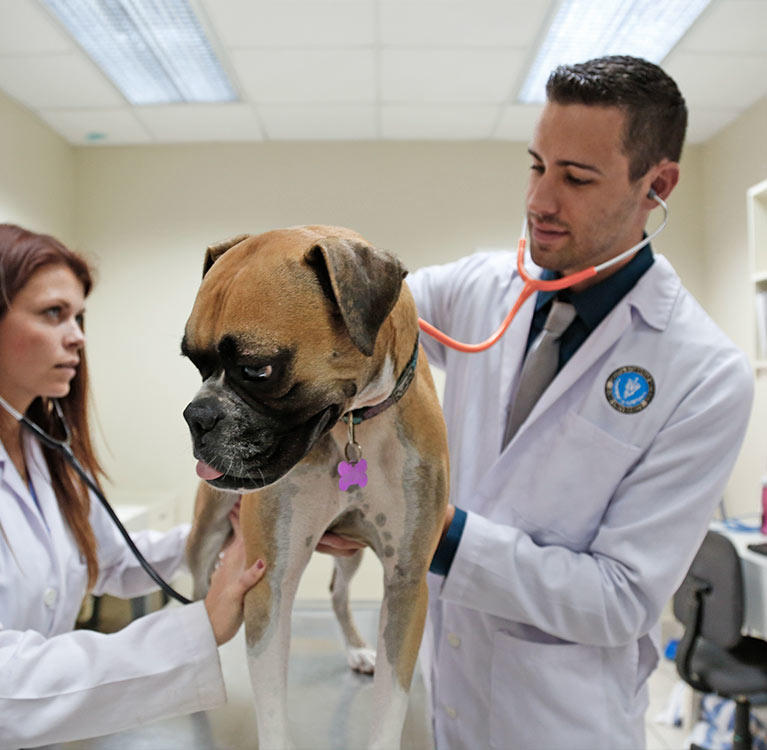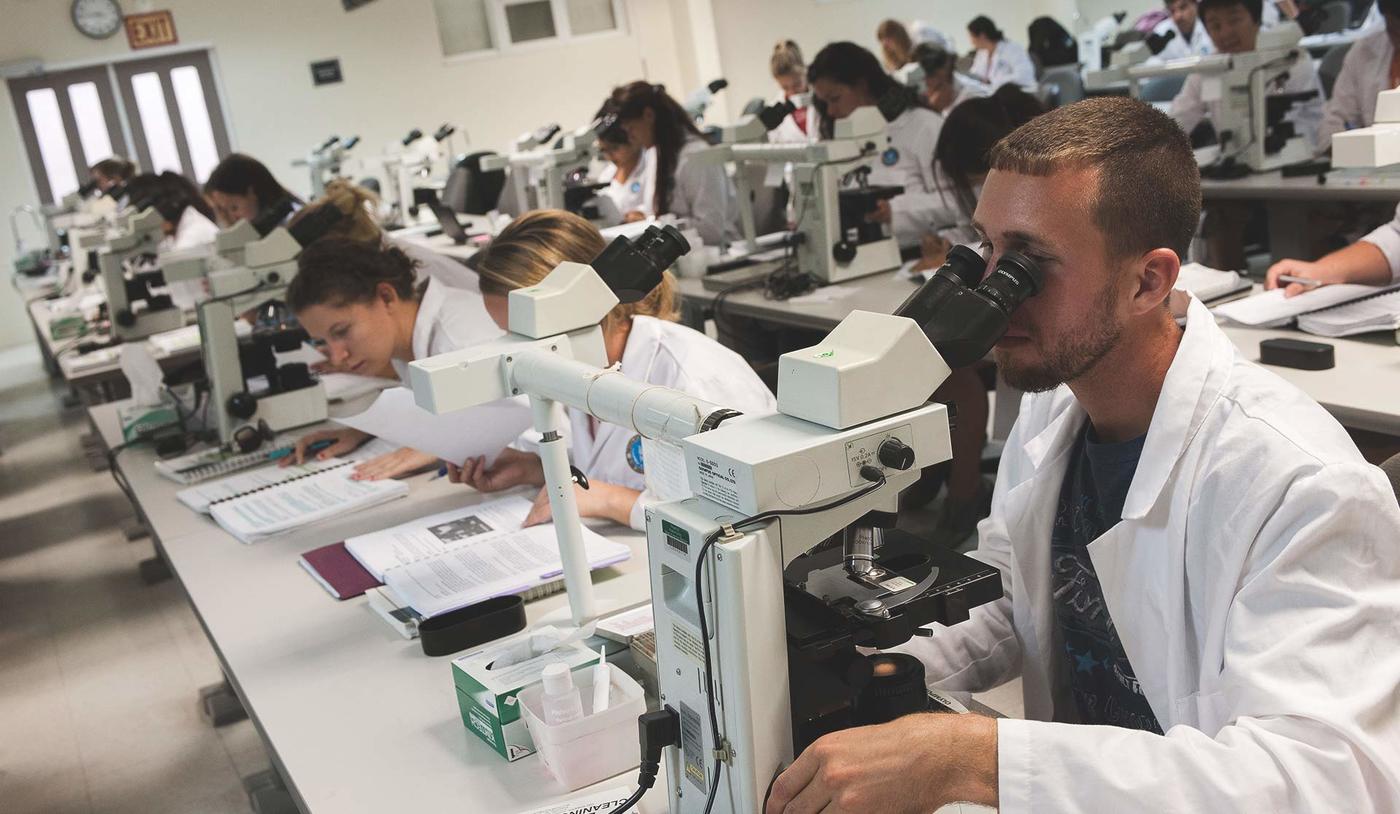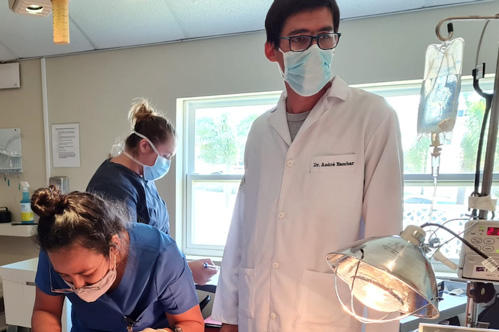As a dedicated pet owner or caretaker, you are committing to a host of responsibilities when you take in a new pet. When you bring home a cat or dog, you are obligated to maintain the health and well-being of the animal. And as pet owners, it’s your responsibility to arrange for quality care of your animal. This includes providing:
- A safe living environment
- Food and water
- Regular exercise
- Companionship
- Veterinary care
- General care (grooming, nail clipping, etc.)
Veterinary care includes regular checkups and vaccinations as well as having your pet spayed or neutered to prevent reproduction.
SPAY VS. NEUTER: WHAT’S THE DIFFERENCE?
For some, the decision to have pets spayed or neutered is easy. However, the terms are often misused. So, what’s the difference between spay and neuter procedures? Spaying is the removal of the ovaries and usually the uterus of a female animal. Neutering is the removal of the testes in a male animal. Neutering and spaying procedures render pets unable to reproduce. As unpleasant as these surgical procedures sound, they are simple and often necessary, and they can be beneficial to your animal as well as the animal population in general.
Throughout the world, animal overpopulation is a problem. Feral dogs and cats live rough, often short lives outdoors. Animals in shelters may spend much of their lives in cages — or worse: a large number of them are eventually euthanized. Taking the responsibility and care to spay or neuter a pet — especially those that spend time outdoors — is an important step toward helping reduce the suffering of unwanted or simply unknown animals.
WHY SPAY AND NEUTER YOUR PETS?
Most veterinarians recommend taking your pet in for the appropriate reproductive procedure at a young age. Outlined below are some of the benefits of spaying and neutering.
MEDICAL BENEFITS TO SPAYING OR NEUTERING
Spaying or neutering may allow your pet to live a longer and healthier life. Andrea Peda is a Doctor of Veterinary Medicine (DVM) and an assistant professor at Ross University School of Veterinary Medicine (Ross Vet) in St. Kitts. Dr. Peda says, “Spaying a female pet can help prevent life-threatening infections and tumors of the reproductive tract, as well as breast tumors. The inability to reproduce eliminates the complications that could accompany pregnancy and delivery.” Neutering a male pet can reduce the chance of testicular cancer and some prostate problems.
BEHAVIORAL BENEFITS TO SPAYING AND NEUTERING
An animal’s sex hormones influence the way it acts. Spaying and neutering can help reduce or even eliminate certain behaviors. Spayed female pets won’t go into heat (estrus). While heat cycles can vary, female cats usually go into heat fairly often during breeding season, which can be all year round in certain climates. In an effort to find a mate, they may yowl and urinate, sometimes in undesirable locations. Female dogs in heat can show different behaviors associated with hormonal stimulation, such as being more friendly, reserved, or even aggressive. In-heat dogs and cats can attract males from afar to your yard and vicinity.
A benefit of neutering your male dog or cat is that it will be less likely to roam away from home. They do this to find mates and may end up in trouble (traffic accidents or fights with other males, for example). “Pets may be better behaved and show a decrease in mounting behavior, the marking of territory with urine, and intermale hormone-related aggression,” says Dr. Peda.
PUBLIC HEALTH BENEFITS TO SPAYING AND NEUTERING
Spaying and neutering prevent unplanned pet pregnancies and are effective ways to help curb the number of homeless animals that roam the streets each year. The procedures can also reduce the risk of transmitting zoonotic diseases like rabies to humans. In some cases, feral animals are trapped and “fixed” and then returned to where they were caught. This helps, but the vast majority of homeless animals are left to reproduce, compounding the overpopulation problem.
WHEN TO SPAY OR NEUTER YOUR PETS
It is generally recommended to spay or neuter your pet when they are young. The best time to spay or neuter your dog is at about six to nine months of age, but the time frame varies according to the size and breed of dog. Adult dogs can also be spayed and neutered, so don’t hesitate to have it done if you adopt a fully-grown dog. However, the risk of complications after surgery increases for older or overweight dogs and those with health problems. As always, consult your veterinarian first. Cats are generally safe to be spayed or neutered after they reach 8 weeks old, but many vets recommend waiting until cats reach 4 or 5 months of age.
PET RECOVERY AFTER SPAYING OR NEUTERING
After the surgery, your pet will likely experience some brief, mild discomfort. There are steps you can take to help the recovery process go smoothly.
According to Dr. Peda, “After your pet has been spayed or neutered, they will have a recovery period of 10 to 14 days during the healing process. Your pet will likely have stitches in place that will need to be removed at the end of the recovery period. Your pet should remain as quiet and rested as possible during the recovery period to allow the tissues to heal properly. Rest includes separation from other animals, including household pets, and the avoidance of playing, running, jumping, bathing, and swimming. Convincing a kitten or puppy not to play, run, or jump is nearly impossible. Just be sure to monitor your pet’s surgery incision site daily to watch for any redness, discharge, or swelling. Also, monitor for signs of pain; a decrease in appetite or energy; and abnormal hiding, lethargy, or depression. If anything of concern comes up, you should contact your veterinarian right away for advice.”
It’s important to know that any surgery may have potential complications. Spaying and neutering are common procedures, but like all surgeries, there are such risks as infections and complications from anesthesia. It is important you work with your veterinarian to discuss your concerns and post-surgery protocols.
WHAT IS THE COST OF SPAYING OR NEUTERING?
The cost to have your pets spayed or neutered depends on the weight, size, and sex of your pet; whether your pet requires vaccinations; and a number of other variables. It is important to remember, however, that it is a small, one-time cost compared to the numerous benefits it provides, and the number of unwanted issues that it will help you and your pet avoid. It is much less expensive to spay or neuter than to pay for vet care dealing with life-threatening infections, cancers, and other emergencies associated with the reproductive tract. And having your pet fixed is much more cost-effective than raising a litter of puppies or kittens.
ARE THERE POTENTIAL NEGATIVES TO SPAYING OR NEUTERING?
Having a pet fixed at too early an age may lead to health or behavioral problems, which is why veterinarians don’t recommend neutering or spaying before an animal reaches a certain age. Early spaying or neutering can cause a loss of bone mass, joint problems, urinary incontinence, or other health issues. Some cancers, too, may be linked to premature spaying or neutering. Be sure to check with your vet about the right time to spay or neuter, and do some research on the particular size, breed, and type of your animal. Of course, if you want your pet to breed, spaying and neutering are not for you. After these surgeries are performed, they cannot be reversed.
Pet owners often cite many reasons why they won’t spay or neuter their animals. We’ll try to dispel some myths here:
My pet will become fat.
Too much food and lack of exercise make a pet fat. Removing the reproductive organs can result in a decreased metabolism, but if you monitor food intake and provide exercise, your pets will stay fit.
My pet is purebred. He/she can’t be fixed.
All pets can be fixed, regardless of breed, and unwanted purebreds and their offspring also end up in shelters.
My pet is special, and I want another pet just like him/her.
There is no guarantee that your pet’s offspring will inherit the best qualities of the parent. If you want to continue the bloodline of your pet, be sure you have the ability and space to care for all the offspring.
My dog is a guard dog, and if I neuter, he will no longer protect my home.
Don’t confuse aggressive behavior for protective behavior. Neutering your male dog may decrease some hormone-related intermale aggression, but it will not change his innate personality or his desire and ability to protect your home.
My female dog or cat should have the ability to have a litter, as this is a natural part of her life.
Pets don’t have a conscious desire to reproduce. Sexual reproduction is merely a biological function, and usually an uninvited one. Having a litter can also be stressful on a female’s body, regardless of species. The sooner you spay your dog or cat, the better her chances will be for long-term health and welfare. Raising litters can be stressful and costly to the pet owner as well, and can contribute to overpopulation when homes cannot be found for the offspring.
YOUR PET’S HEALTH
Spay or neuter pet procedures are affordable and commonplace. Taking your pet in for one of these reproductive surgeries is one of the best ways to help ensure their long-term health. And note that spaying and neutering is not just for cats and dogs. Any mammal larger than a hamster can potentially be spayed or neutered, including rabbits, guinea pigs, and ferrets — all of which are famous for their prolific reproductive abilities.
For more information on pet ownership, check out Ross Vet’s Guide for Taking Care of Pets. If you are curious about becoming a veterinarian yourself, learn more about Ross Vet, its DVM curriculum, and the requirements for getting into vet school.








